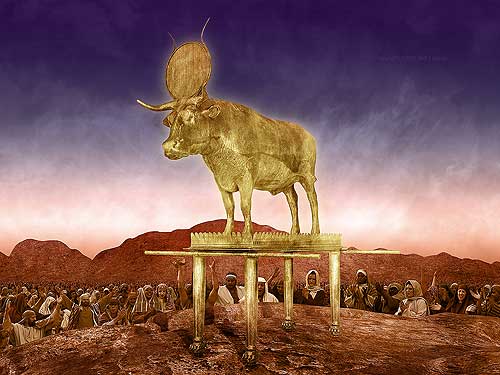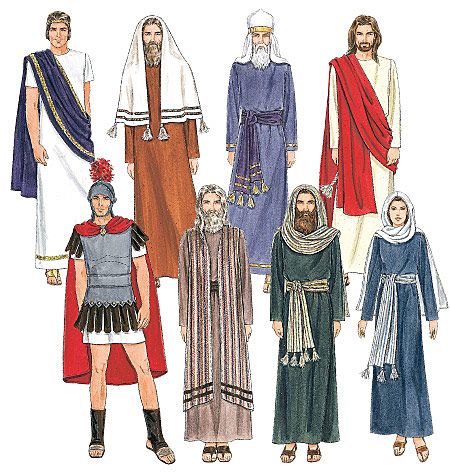I started to read the Bible to see if it could offer me answers beyond the “logical” explanations I already hold. I went into this endeavor with an open mind, ready to change my belief system if it was sufficiently challenged.
The Bible contains two books: the Old Testament and the New Testament. The Old Testament is a book for Jews that includes Genesis and the stories of Moses and King David, among others. It sets the stage for the New Testament and the arrival of Jesus, a Jew who came from David’s ancestral line. I started reading the King James Version before moving to the New Living Translation, which uses modern language to make reading easier (I’ll quote from both versions). This article only covers the Old Testament.
The Old Testament (OT) primarily contains rules for Jews, many of which are followed by Christians, such as the Ten Commandments (Jews also get many of their rules from the Talmud and other texts). If there’s a rule in the OT that Christians don’t have to follow, it was “fulfilled” by Jesus and his ultimate sacrifice. The larger rules such as not killing or bearing false witness apply to both religions, which is where a term like “Judeo-Christian morals” come from.
What I quickly realized is that the legitimacy of Jesus depends on the accuracy and truthfulness of the OT. If the OT is false then Jesus did not come from the line of David and any prophecy he fulfilled is also false. This means that you must believe in the story of the OT to also believe in Jesus being the son of God.
Christians have a special place in their hearts for Jews, because Jesus was a Jew and they accept that God originally chose them as His people, but if the OT is not real then the New Testament (NT) is at least partly a work of fiction.
A woman ruined paradise on Earth

Count on a woman to not be happy with living in literal paradise. The first woman, Eve, is seduced by a serpent creature to eat from a tree she was explicitly told not to touch.
And when the woman saw that the tree was good for food, and that it was pleasant to the eyes, and a tree to be desired to make one wise, she took of the fruit thereof, and did eat, and gave also unto her husband with her; and he did eat. (Genesis 3:6)
And the LORD God said unto the woman, What is this that thou hast done? And the woman said, The serpent beguiled me, and I did eat. (Genesis 3:13)
Her husband, Adam, failed in his masculine duties to prevent his wife from eating the forbidden fruit, and also for being manipulated by her into eating it as well. For this “original sin,” Adam and Eve, along with the rest of humanity, were no longer allowed to live in paradise and were destined to experience pain, sin, misery, suffering, and death.
Even since Biblical times, men knew what would happen if women were not prevented from doing what they wanted. One of the most important stories of the Bible was intended to control the amount of free will that they now have.
The first false rape accusation

The Bible has the first written record of a false rape accusation. It was levied against Joseph by the wife of Egyptian military leader Potiphar. The reason? He refused to sleep with her.
And it came to pass about this time, that Joseph went into the house to do his business; and there was none of the men of the house there within. And she caught him by his garment, saying, Lie with me: and he left his garment in her hand, and fled, and got him out. And it came to pass, when she saw that he had left his garment in her hand, and was fled forth, That she called unto the men of her house, and spake unto them, saying, See, he hath brought in an Hebrew unto us to mock us; he came in unto me to lie with me, and I cried with a loud voice: And it came to pass, when he heard that I lifted up my voice and cried, that he left his garment with me, and fled, and got him out. (Genesis 39:11-14)
He was put into prison to rot, and would have died there unless he was able to successfully interpret one of the Pharaoh’s dreams. Modern men, unfortunately, do not have this get-out-of-jail-free card.
Not bearing false witness is a recurring rule in the Bible. The punishment for the liar should be the same that their victim would have suffered had he been found guilty.
Thou shalt not raise a false report: put not thine hand with the wicked to be an unrighteous witness. (Exodus 21:1)
If a false witness rise up against any man to testify against him that which is wrong then both the men, between whom the controversy is, shall stand before the LORD, before the priests and the judges, which shall be in those days. And the judges shall make diligent inquisition: and, behold, if the witness be a false witness, and hath testified falsely against his brother, then shall ye do unto him, as he had thought to have done unto his brother: so shalt thou put the evil away from among you. (Deuteronomy 19:16-19)
Morals and law

The morals laid out in the Bible were straight-forward. Things that we now believe as “common sense” are based on Jewish morality principles, which amount to taking responsibility for your actions and those under your control, such as your farm animals. If you or they cause harm to others, you must rectify the problem or be punished in an equal manner.
Eye for eye, tooth for tooth, hand for hand, foot for foot. Burning for burning, wound for wound, stripe for stripe. (Exodus 21:24-25)
Whoso killeth any person, the murderer shall be put to death by the mouth of witnesses: but one witness shall not testify against any person to cause him to die. (Numbers 35:30)
The OT was not at all lenient about sparing punishment. Christianity greatly softened this approach with Jesus instructing his followers to love their enemies.
God is usually angry

The OT God is a furious god. He is always ready to enact death and destruction on those who stand against the Jews. More commonly, however, his fury is directed at the Jews themselves when they stray from Him and worship other gods or idols.
Overall, God makes hundreds of threats in the OT, including against women and children, and performed some actions that today could be called genocide. If you stand against him and his plans, you will not escape his wrath.
Then the LORD said, “I have seen how stubborn and rebellious these people are. Now leave me alone so my fierce anger can blaze against them, and I will destroy them.” (Exodus 32:9-10)
If you somehow manage to escape punishment from God, he will punish your children and grandchildren:
But I do not excuse the guilty. I lay the sins of the parents upon their children and grandchildren. (Exodus 34:7)
I lay the sins of the parents upon their children; the entire family is affected—even children in the third and fourth generations of those who reject me. But I lavish unfailing love for a thousand generations on those who love me and obey my commands. (Deuteronomy 5:9-10)
Kill this man’s children! Let them die because of their father’s sins! They must not rise and conquer the earth, filling the world with their cities.” (Isaiah 14:21)
If you follow God, he will grant you victory over your enemies:
The LORD your God will drive those nations out ahead of you little by little. You will not clear them away all at once, otherwise the wild animals would multiply too quickly for you. But the LORD your God will hand them over to you. He will throw them into complete confusion until they are destroyed. He will put their kings in your power, and you will erase their names from the face of the earth. No one will be able to stand against you, and you will destroy them all. (Deuteronomy 7:22-24)
If God decides to destroy you, chances are he will do so by empowering your enemies:
And the children of Israel did evil again in the sight of the LORD: and the LORD strengthened Eglon the king of Moab against Israel, because they had done evil in the sight of the LORD. (Judges 3:12)
There is no afterlife in the OT. If you stand against God, you will be punished in this life, but it’s quite common for bad people to prosper for extended periods. This fact is referenced several times in the Bible by the faithful but downtrodden. How could people have faith in God when they follow His rules yet are worse off than pagan worshipers?
Christianity solved that problem by describing an afterlife where you can be rewarded with entry by following Jesus. Your neighbor sins continually and happens to be rich and healthy, but rest assured that he will be punished after he dies with eternal damnation.
The afterlife/hell reward-punishment system would be effective at allowing the poor to accept their lot and not rebel against their richer neighbors or rulers. Similar themes of acceptance are found in the OT:
It is better to be godly and have little than to be evil and rich. For the strength of the wicked will be shattered, but the LORD takes care of the godly. (Psalm 37:16-17)
Better to be patient than powerful; better to have self-control than to conquer a city. (Proverbs 16:32)
Whether deliberately or not, the Bible push faith in God as a way to accept your disadvantaged lot. I imagine that the poorer you were, the more you looked to faith to explain how your hard life was a preliminary stage before being graced with God’s goodness.
There is little in the Bible about taking the initiative to start a revolution, overthrow your corrupt rulers, and take their wealth. You’re supposed to wait for God to take care of evil-doers instead of addressing the problem yourself.
God has a hard time getting the Jews to follow Him

Not long after God freed the Jews from bondage in Egypt, they went against Him and worshiped a golden calf. In moments of fatigue from traveling through the wilderness on the way to Israel, they even begged Moses to return back to slavery in Egypt. The OT has countless examples of the Jews behaving badly and God having to enact vengeance upon them, in spite of all the miracles He performed for them through His prophets.
Ye have been rebellious against the LORD from the day that I knew you. (Deuteronomy 9:24)
God comes across as a parent who has trouble establishing authority over his petulant children. His threats are clear and numerous:
If you ever forget the LORD your God and follow other gods, worshiping and bowing down to them, you will certainly be destroyed. Just as the LORD has destroyed other nations in your path, you also will be destroyed if you refuse to obey the LORD your God. (Deuteronomy 8:19-20)
Just as the LORD has found great pleasure in causing you to prosper and multiply, the LORD will find pleasure in destroying you. You will be torn from the land you are about to enter and occupy. (Deuteronomy 28:63)
Israel is a foolish and stupid nation, for its people have turned away from God. Therefore, the one who made them will show them no pity or mercy. (Isaiah 27:11)
He has moments where He tries to understand why the Jews don’t listen after all that He’s done for them:
And the LORD said to Moses, “How long will these people treat me with contempt? Will they never believe me, even after all the miraculous signs I have done among them? I will disown them and destroy them with a plague. Then I will make you into a nation greater and mightier than they are!” (Numbers 14:11)
“How can I pardon you? For even your children have turned from me. They have sworn by gods that are not gods at all! I fed my people until they were full. But they thanked me by committing adultery and lining up at the brothels. They are well-fed, lusty stallions, each neighing for his neighbor’s wife. Should I not punish them for this?” says the LORD. Should I not avenge myself against such a nation?” (Jeremiah 5:7-9)
At other points, it seems that God throws up His hands in utter despair:
“Did I not rescue you from the Egyptians, the Amorites, the Ammonites, the Philistines, the Sidonians, the Amalekites, and the Maonites? When they oppressed you, you cried out to me for help, and I rescued you. Yet you have abandoned me and served other gods. So I will not rescue you anymore. Go and cry out to the gods you have chosen! Let them rescue you in your hour of distress!” (Judges 10:11-14)
“O my people, what have I done to you? What have I done to make you tired of me? Answer me!” (Micah 6:3)
The problem may lie in the fact that God moves too slowly. Jews know that if they disobey Him, they can “get away” with the sin and possibly escape punishment, possibly for the duration of their lives. Maybe their children or grandchildren will be punished instead, but God’s punishment won’t be swift or even guaranteed.
In addition, God’s punishments aren’t obvious. Is the bad you’re experiencing in life due to just a random event or from God’s hands? There is no way to link your actions in this life with that of a Godly punishment or reward. This is why the Jews would worship a fertility God like Baal, who would give them more immediate benefits.
At the end of the Bible, in the Book Of Zephaniah, we complete a full circle and arrive right at the beginning, with the Jews failing to listen to God.
“I have wiped out many nations, devastating their fortress walls and towers. Their streets are now deserted; their cities lie in silent ruin. There are no survivors—none at all. I thought, ‘Surely they will have reverence for me now! Surely they will listen to my warnings. Then I won’t need to strike again, destroying their homes.’ But no, they get up early to continue their evil deeds. Therefore, be patient,” says the LORD. “Soon I will stand and accuse these evil nations. For I have decided to gather the kingdoms of the earth and pour out my fiercest anger and fury on them. All the earth will be devoured by the fire of my jealousy.” (Zephaniah 3:6-8)
The end of the Bible suggests that God failed to achieve any sort of change upon His people.
Did God want the Jews to be Central Bankers?

The part that raised my eyebrows, and made me question the OT in its entirety was when God granted Jews the ability to lend money at interest to non-Jews, but not to Jews.
Do not charge interest on the loans you make to a fellow Israelite, whether you loan money, or food, or anything else. You may charge interest to foreigners, but you may not charge interest to Israelites, so that the LORD your God may bless you in everything you do in the land you are about to enter and occupy. (Deuteronomy 23:19-20)
In effect, God wanted Jews to be merchants with the end goal of enslaving the world with centralized banking and finance as perfected by the Jewish families like the Rothschilds and Warburgs. This is such a specific exemption that it’s hard not to suspect that it was inserted there by man and not God.
What to think about all the miracles?

The OT had a lot of miracles. Some prophets sent by God performed substantially more miracles than others. The first question you wonder is why don’t we see miracles today? A possible answer is that we simply rationalize positive events as “good luck” when in the past they would just attribute it to God’s hands. Then again, people today aren’t exactly being raised from the dead like they were in the OT.
Conclusion
The OT is long but the storyline is basic:
- God has rules that he wants Jews to follow
- If Jews obey God, they are rewarded
- If Jews disobey God, they or their descendants are punished
This repeats hundreds of time throughout the OT, sometimes in a chronological history and sometimes in a sort of time vacuum, with constant reinforcement of the lesson that you must obey everything God wants in order to escape His punishment.
I started reading the OT with openness, but it turned to skepticism early on. The logical part of me couldn’t fully accept what appears to be a compilation of writings meant to direct or control a small group of people from stepping out of line and questioning their human rulers (kings and priests). I never felt that I was reading anything but the words of mortal man, though I do agree with the general wisdom and morality that the OT provides, along with its take on human behavior.
If you’ve spent your whole life guided by the scientific method, it’s hard to completely accept at face value the stories that the Bible provides. I moved on to the New Testament less eager that when I started reading the Old.
